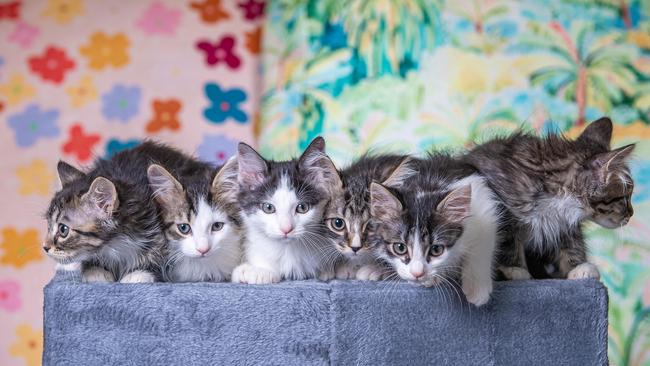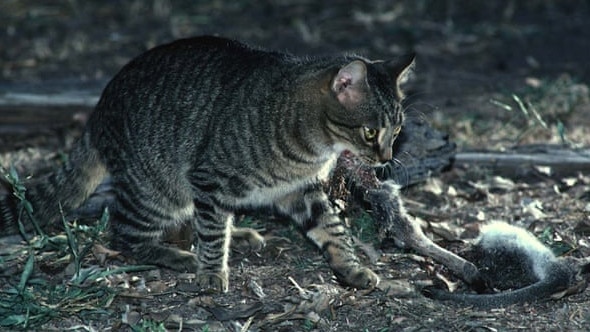Cat crisis: COVID-19 council cut backs could mean disaster for native animals
Experts say a stray cat population spike with devastating impacts on native wildlife has hit Melbourne after many councils abandoned trapping programs during COVID lockdown.

Melbourne City
Don't miss out on the headlines from Melbourne City. Followed categories will be added to My News.
Experts have warned council cut backs during COVID-19 could have serious long term effects on native wildlife as the cat population escalates.
Cats are responsible for killing 390 million animals a year but cat trapping measures to reduce breeding were stopped during the COVID-19 lockdown when it was deemed non-essential by the state government.
North Melbourne shelter The Lost Dogs are currently at a crisis point with more arriving every day adding to the 800 cats and kittens in care.
Lost Dogs’ Home spokesman Suzana Talevski said the council suspension of cat trapping during COVID-19 made a bad situation worse.
“Kitten season has always been a challenge but since coronavirus lockdowns and restrictions it has become worse,” she said.
“Nearly all Councils suspended their cat trapping programs for most of the lockdowns. This has made the stray cat’s problem even more problematic.
“Cats are prolific breeders – research has shown that just one pair of entire cats and their offspring can produce 420,000 cats in seven years.”
The shelter estimates they care for more than 10,000 abandoned and stray cats and kittens every year.
Almost all local councils in Victoria suspended or vastly limited cat trapping during the kitten season.
Melbourne, Knox, Monash, Bayside, Darebin, Dandenong, Moonee Valley, Mornington Peninsula, Yarra Ranges, Frankston, Macedon Ranges, Ballarat, Port Phillip and Casey suspended the service for several months and resumed when restrictions eased.
Bendigo and Glen Eira stopped trapping cats for 4 weeks.
In Albury and Melton there was no change to the program and in Boroondara traps were installed for free during the pandemic.
Moreland City Council reduced their program during the pandemic and will offer eligible owners free desexing for limited time starting next month.
Maribyrnong and Bass Coast have no formal trapping but hire traps out to the public with some suspensions in 2020.

Pet cats in Australia kill million animals a year despite being fed at home, a number which jumps for feral breeds.
Researchers at the Threatened Species Recovery Hub surveyed local governments in Australia and found they are concerned about the level of care provided with some owners reluctant to cover the cost of desexing and registration.
ANU and UQ Professor Sarah Legge who works for the National Environmental Science Program Threatened Species Recovery Hub said a spike in car numbers could be “potentially disastrous” for wildlife.
“The reason it’s important we keep on top of cats is because they do incredible amounts of damage to our wildlife.
Research we did last year looked at the toll pet cats make … we worked out on average every pet cat was killing 186 animals a year, 110 being native.
“In many areas either cat control isn’t happening enough to keep the population down, or, where people were managing cats heavily, the removal of that control would lead to a population increase.
“If there has been a population spike and it’s near a colony of threatened birds for example, that’s going to be potentially disastrous.”
The Lost Dogs’ Home will offer reduced adoption fees for adult cats and pairs of kittens at the North Melbourne and Cranbourne shelters in a bid to clear the cat shelter.
For more information visit dogshome.com/cleartheshelter




